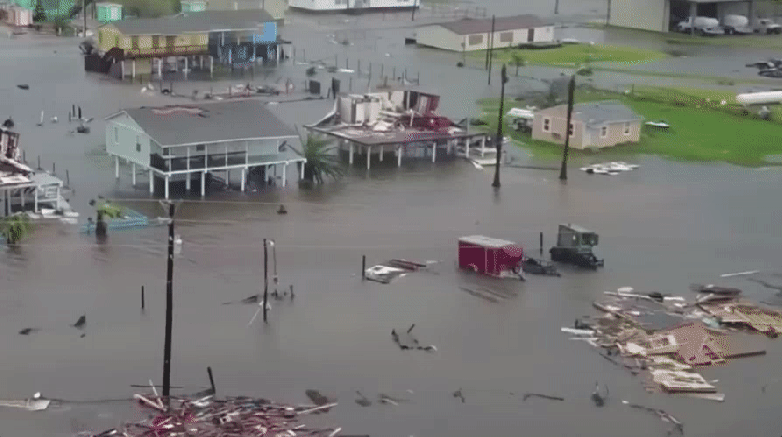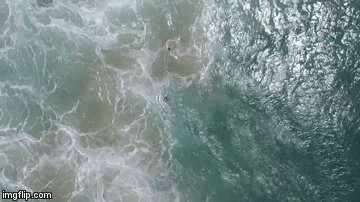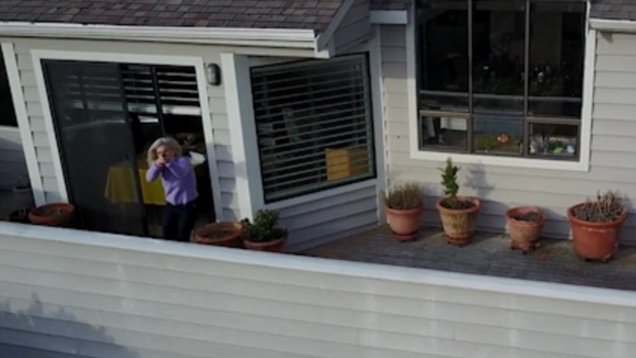
We can already see drones being used today in a myriad of different ways in the market. They are being used to deliver medical supplies, helping farmers to survey land, assisting crews in cleaning up after accidents, contributing to a search and rescue efforts, and plenty more.
Who knew that this technology could make its way into so many industries, this quickly, and yet there are still talks of big ideas that are yet to be fully realized.
After the recent hurricane hit Texas, drones have helped in a big way to survey the damage and land area. And the same thing happened in Florida, and Puerto Rico. For the recent weather disasters in those areas, the FAA issued hundreds of authorizations for drone operators to use the device in the disaster area.

They didn't just survey the land either, they were also used to help rescue teams execute their search and rescue missions.
Puerto Rico also experimented with using drones to inspect cell tower damage, and utilizing a drone to temporarily restore service by acting as an equipment replacement; hovering in the area to service the phones nearby.

Just recently,...
Coincidentally, lifeguards had been in the area for a drone training session, that quickly turned into a more serious situation.
They were able to carry-out the drone rescue within 1-2 minutes. And when even seconds can make the difference between life or death, in an emergency rescue scenario, drones could help to possibly save a lot of lives.
They've also been using drones across Australia, and in other regions, to assist with looking for sharks and crocodiles.

Drones are able to improve on search and rescue efficiency immensely.
As far as searching for missing people, helping drowning swimmers, or delivering life-saving medical supplies that could get to you much faster than an ambulance, it's clear that this technology has the capability to help save many people from danger and be able to assist them in a time when they need it most.

It hasn't all been rosy...
We've got drones operating in various countries overseas that aren't helping, but rather destroying communities and lives with their military activities. Unfortunately, these drones continue to operate with a fail-rate of more than 90 percent. And yet we continue. I'd much rather see this technology used to help people and improve our standard of living, than being used to initiate violence against mostly innocent civilians.
Despite the worries that some have and the possibility for misuse, it's still an incredible technology that's been able to really impact our way of living in a variety of ways. But the people themselves are ultimately going to decide, with their support or lack of it, whether this is a trend that is going to flourish, or one that is going to eventually fizzle out.
Pics:
via Richmond-News.com
via BGR
pixabay
imgflip
via imgur
Sources:
https://www.techworld.com/picture-gallery/apps-wearables/best-uses-of-drones-in-business-3605145/
https://www.bloomberg.com/news/articles/2017-12-19/drone-tracking-plan-moves-u-s-delivery-by-air-closer-to-reality
http://dailysignal.com/2018/01/22/drone-rescues-help-show-time-let-revolutionary-aircraft-soar/
https://www.cnet.com/news/drone-lifeguard-swimmers-australia-little-ripper-uav/
https://www.irishtimes.com/news/ireland/irish-news/drone-technology-could-make-mountain-searches-much-quicker-1.2850728
https://www.washingtontimes.com/news/2015/oct/15/90-of-people-killed-by-us-drone-strikes-in-afghani/
http://www.dailymail.co.uk/news/article-4283486/Woman-grabs-gun-shoots-nosy-neighbour-s-drone.html
@doitvoluntarily/angry-neighbor-takes-a-gun-to-noisy-drone
http://bgr.com/2017/08/28/hurricane-harvey-drone-footage-video/
https://nypost.com/2017/06/13/these-drones-could-save-your-life-faster-than-an-ambulance/
https://www.theatlantic.com/politics/archive/2016/03/the-obama-administrations-drone-strike-dissembling/473541/
https://www.nbcnews.com/mach/science/hurricanes-show-why-drones-are-future-disaster-relief-ncna799961
http://www.ibtimes.com/nearly-90-those-killed-us-drones-were-not-intended-targets-during-five-month-span-2142183
Related Posts:
Drones Helping To Detect Sharks And Crocodiles On Beaches In Australia
@doitvoluntarily/drones-helping-to-detect-sharks-and-crocodiles-on-beaches-in-australia
The Future Of Mind-Controlled Drone Fleets
@doitvoluntarily/the-future-of-mind-controlled-drone-fleets
Turning To Drones For Wildlife Help
@doitvoluntarily/turning-to-drones-for-wildlife-help
